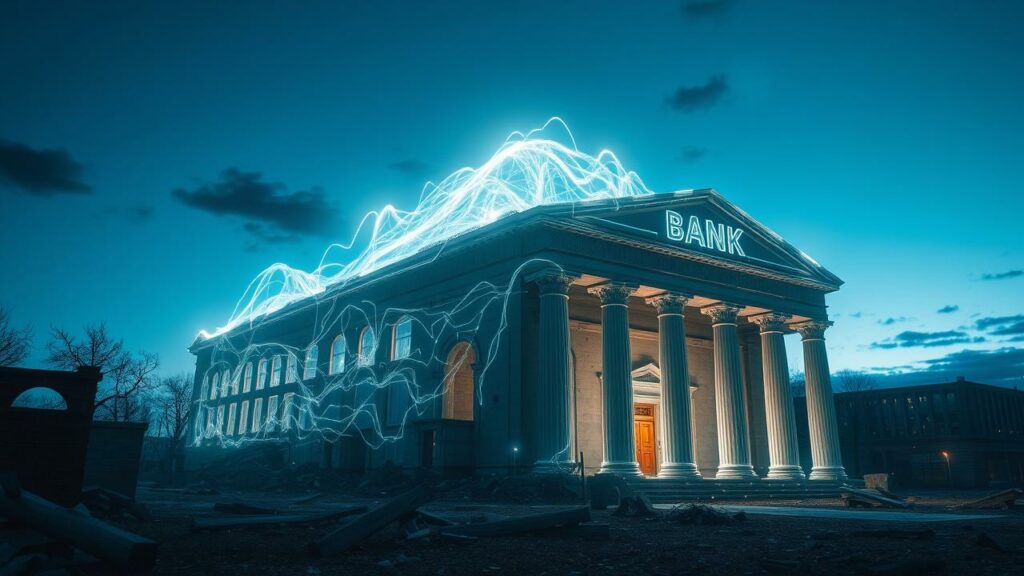Is This Your Kingdom or Your Cage?
The smell of fresh paint on a flipped house is the smell of victory for some. For others, it’s the cloying scent of a money pit masquerading as an asset. They sell you the dream: a portfolio of properties humming along, spitting out cash while you sleep. But they rarely tell you about the 3 AM phone call, the frantic voice on the other end screaming about a burst pipe that’s turning a basement into a murky, subterranean lake.
This isn’t just about numbers on a spreadsheet. This is about gut-wrenching decisions and moments of pure, unadulterated triumph. To truly understand the pros and cons of real estate investing is to understand the human drama at its core. It’s deciding if you have the steel in your spine to face the monster when it crawls out from under the floorboards, or if you’ll be the one it devours.
The Unvarnished Ledger
There’s a beautiful, brutal symmetry to it all. On one side of the coin, you have tangible wealth, a legacy carved from brick and mortar, and a middle finger to inflation. You hold the deed. You call the shots. The cash flow can be a steady, life-giving river.
Flip the coin. The dark side reveals itself. Illiquidity that chains you to a sinking ship. Management nightmares that suck the soul right out of you. The crushing weight of capital-intensive repairs that appear from nowhere, like specters in the night, demanding tribute. This path isn’t for the timid, and glossing over the risks is the fastest way to become a cautionary tale whispered at investor meetups.
The Gravity of a Tangible Kingdom
The air in her cab was a mix of diesel and the cheap pine air freshener swinging from the mirror. For twelve years, her world had been the endless ribbon of highway, a blur of concrete and sky viewed through a bug-splattered windshield. She’d stacked every dollar, driven every extra mile, denying herself anything beyond the barest necessities, all for a dream that felt as distant as the horizon. A dream of solid ground. Lydia, a long-haul trucker with grit forged in ice storms and asphalt deserts, was done with a life that could be measured in miles per gallon.
Her first property was a duplex that looked as tired as she felt. But it was hers. Every scraped knuckle from replacing the porch steps, every bead of sweat from painting the trim—it was an investment of self. Now, three years later, the rent checks that hit her account feel more real than any stock dividend ever could. It’s the weight of the keys in her hand. It’s the knowledge that she owns a piece of the earth. This is the profound allure of real estate investing; it’s not an abstract number on a screen, it’s a physical fortress against the volatility of the world. It’s creating a story of stability, one repaired faucet and one paid-off mortgage at a time. The tax benefits of real estate investing were just the icing on a very solid, very satisfying cake.
A Visual Autopsy of the Dream
Sometimes you need to see the battlefield to understand the war. The video below cuts through the noise, laying out the stark realities—the triumphs and the tragedies—in a way that hits you right between the eyes. It’s a primer for the brave, a visual guide to the forces you’re about to confront.
Source: Chandler David Smith on YouTube
When the Dream Becomes a Fever
The polished concrete floors and exposed brick of his downtown loft felt like a cruel joke. By day, Jared was a freelance UI designer, a master of clean lines and intuitive digital experiences. By night, he was the bewildered, unwilling slumlord of a triplex on the other side of town—a property he’d bought with starry-eyed visions of “passive income” and “creative renovation projects.” He thought his design skills would give him an edge. What a beautiful, naive thought that was.
The reality was a hydra of horrors. A tenant in 2B who paid rent in excuses and whose late-night “band practices” rattled the very teeth of the neighbors. A roof leak that two different contractors claimed to have fixed, yet which stubbornly reappeared with every rainstorm, a dark, mocking stain on the ceiling. Jared found himself haunted, not by ghosts, but by the specter of his dwindling savings and the incessant buzz of his phone. He hadn’t bought an investment; he’d bought a second, full-time job he was failing at miserably. The dream of freedom had morphed into a cage built of his own ambition.
The Weapon You Choose Defines the War
In a quiet, tree-lined suburb, a city arborist climbed down from a massive oak, dusting sawdust from his jeans. Zayn didn’t chase the frantic, high-stakes game of house flipping. He’d seen too many burn out, their faces etched with the stress of short-term loans and fickle market turns. He didn’t have the stomach for the constant churn of tenant complaints either. His version of the game was slower, quieter, and deeply connected to his craft.
Zayn’s strategy was unique: he hunted for structurally sound but aesthetically challenged homes with ugly, neglected yards. He saw past the dead shrubs and patchy lawns to the potential underneath. Using his expertise, he’d invest modestly in transforming the landscaping—adding mature trees, creating stone pathways, building inviting outdoor spaces. He knew that curb appeal wasn’t just fluff; it was a powerful psychological trigger for buyers. He was playing a different game, using a different weapon. His approach illustrates a core truth: the real estate investment strategies you choose must align with your soul, your skills, and your tolerance for chaos.
Blood and Bricks vs. The Digital Ghost
The debate is eternal, whispered in coffee shops and shouted in online forums: real estate investing vs stocks. One is a ghost in the machine, a flicker of light on a screen representing a fraction of a company you’ll never see, run by people you’ll never meet. It offers liquidity—the seductive, panic-button escape. It asks for your capital, but not your sweat. A fine choice for many.
Real estate is different. It’s flesh and bone. It demands your attention. You can stand on it. You can repair its wounds. You can mold it. It may be illiquid, tying you down when the market turns sour, but that very illiquidity forces a discipline the stock market rarely does. There is no day-trading your duplex. This choice isn’t just financial, it’s philosophical. Do you want to be a spectator in the grand theater of the market, or do you want to step onto the stage yourself, feel the heat of the lights, and own the narrative, for better or for worse?
Armory of the Mind: Essential Reading
Before you step into the arena, you sharpen your sword. These books are the whetstones. They are not gentle guides; they are tactical manuals filled with hard-won wisdom from those who have the scars to prove it.
- What Every Real Estate Investor Needs to Know About Cash Flow… by Frank Gallinelli: Forget the fluff. This is the math of survival. Read it until the numbers are etched onto the back of your eyelids.
- The Complete Guide to Real Estate Finance for Investment Properties by Steve Berges: If capital is the lifeblood of this business, financing is the heart that pumps it. Master this, or you’re already dead in the water.
- Investing in Real Estate, Edition 7 by Gary W. Eldred: A comprehensive overview that serves as a solid foundation. It helps you understand the map before you wander into the treacherous terrain of real estate investing for beginners.
Questions that Keep You Up at Night
What is the absolute biggest risk in real estate?
Forget market crashes for a moment. The biggest risk is you. It’s your own lack of knowledge, your own emotional decision-making, your own failure to do the brutal, boring due diligence. The market will do what it does, but over-leveraging yourself on a bad deal because you got “a feeling” is a self-inflicted wound that festers long after a recession ends. External factors like interest rates and natural disasters are real threats, but they are survivable with the right strategy. A bad foundation of personal judgment is not.
Is real estate really worth it, then?
Is a championship ring worth the broken bones and punishing training? For those wired for it, absolutely. If you seek a tangible path to wealth, a hedge against the abstract whims of inflation, and a venture over which you have legitimate control, it can be profoundly rewarding. But if the thought of a tenant from hell or a surprise five-figure roof replacement gives you heart palpitations, your answer might be different. The “worth” is measured in both dollars and sanity.
How can you possibly start without a mountain of cash?
This is where the game gets interesting. It’s a common misconception that you need a dragon’s hoard of gold. Creative financing, partnerships, hard money loans, even finding someone with the capital who needs your hustle—these are the tools of the resourceful. Learning how to start investing in real estate with less money is less about finance and more about ingenuity and nerve. It’s about building a team and leveraging other people’s resources until you have your own. It’s hard, but it’s far from impossible.
Maps to Other Territories
Your education doesn’t end here. These resources provide more perspectives, more data, and more stories from the trenches.
- Investment Real Estate: Meaning, Benefits, Risks – A solid primer from Investopedia.
- Real Estate vs. Stocks: Which Is the Better Investment? – NerdWallet’s take on the classic showdown.
- Is Real Estate a Good Investment? 16 Pros & Cons – Another detailed breakdown from RealWealth.
- Exploring The Pros And Cons Of Real Estate Investment – The Forbes perspective.
- r/realestateinvesting – A Reddit community with raw, unfiltered advice and stories.
The First Door
You’ve seen the beauty and the horror. You understand the core pros and cons of real estate investing. The question is no longer “what,” but “who.” Who are you going to be in the face of this challenge? The journey to advanced investing and wealth building doesn’t start with signing a mortgage. It starts with a single, defiant act of self-education.
Your first step isn’t to call a realtor. It’s to talk to a local investor. Buy one a cup of coffee. Ask them to tell you their worst story. Look into their eyes and see if you recognize the same fire in yourself. That is your true first investment.







